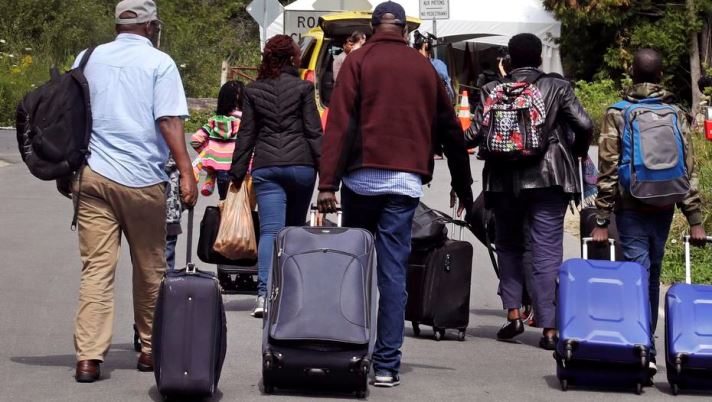For years, the United Kingdom has been a dream destination for thousands of young Nigerians seeking better lives abroad. From care homes to hospitals, the UK’s Health and Care Worker visa offered a stable pathway out of Nigeria’s harsh economic climate. But that era is fading fast.
With the UK set to halt new Health and Care Worker visas for foreign care workers starting July 22, 2025, a once-dependable migration route is closing — leaving many Nigerians questioning what’s next.
This policy shift, part of a broader immigration clampdown designed to reduce net migration, has hit Nigeria’s youth especially hard. As Africa’s most populous nation, Nigeria is home to over 70 million people under 30 — a generation rich in creativity, energy, and ambition. Yet, amid an economy where inflation hovers near 30% and youth unemployment exceeds 40%, opportunities at home remain painfully limited.
The End of a Popular Pathway
The UK’s healthcare sector has long served as a lifeline for many Nigerians. Thousands of trained nurses, caregivers, and medical professionals found employment filling gaps in the National Health Service (NHS), sending billions in remittances back home — an estimated $25 billion annually that supports countless families and sustains Nigeria’s fragile economy.
However, the recent reforms have changed everything. With overseas recruitment for social care roles now suspended and new salary thresholds raised (from £23,200 to £25,000 for certain positions), the pathway is narrower than ever. Dependents face tougher restrictions, and sponsorship requirements have tightened. What once seemed like a clear route to financial security abroad now feels like a closing door.
The numbers tell the story vividly. Between 2002 and 2021, around 60,729 Nigerian nurses migrated to the UK, and by 2022 alone, over 13,000 healthcare workers made the move. Nigerian doctors, too, have relocated in their thousands — about 6,221 in just six years leading up to 2024. Together, they’ve formed a major pillar of the UK’s healthcare workforce, filling nearly 100,000 roles in 2023.
But the UK’s new immigration stance has left many aspiring migrants stranded, uncertain, and disillusioned. The “Japa” dream — Nigeria’s popular slang for escaping to a better life abroad — is now harder to achieve.
Beyond Healthcare: A Shift Toward Innovation Migration
Yet, within this setback lies an overlooked opportunity. The UK’s migration policy is not a total shutdown — it’s a redirection. While the Health and Care Worker visa is closing off, other pathways like the Global Talent Visa and Innovator Founder Visa remain wide open.
These routes are not mere alternatives; they’re strategic pivots that reward innovation, creativity, and entrepreneurship — the very qualities Nigeria’s youth possess in abundance.
Through the Global Talent Visa, professionals in fields such as technology, engineering, research, and the arts can gain UK residency based on their skills and potential rather than employment sponsorship. The Innovator Founder Visa, on the other hand, is designed for those with viable business ideas that are innovative, scalable, and endorsed by an approved UK body.
This marks a new kind of migration — one driven not by necessity, but by value creation. Instead of exporting labour, Nigeria can export ideas.
Nigeria’s Untapped Power: A Generation Built to Create
Nigeria’s youth are not just dreamers — they are innovators waiting to be unleashed. Across the country, young people are building tech startups, fashion brands, creative hubs, and digital solutions that are redefining Africa’s image on the global stage.
Research shows that six in ten Nigerian youth aspire to start their own business, far surpassing those seeking traditional employment. This entrepreneurial mindset is being nurtured by programs like UNICEF’s Generation Unlimited Nigeria, which has already empowered over 11 million young people through training and digital skills, with plans to reach 2.5 million more by 2026. The Tony Elumelu Foundation has supported over 20,000 African entrepreneurs, half of them women, driving job creation and innovation across the continent.
These figures reveal something deeper — Nigeria’s youth don’t lack ambition; they lack access. What they need now is direction — a shift from dependency on conventional migration paths to harnessing the visas and opportunities that reward innovation.
Turning Brain Drain into Brain Gain
Rather than seeing the UK’s policy changes as a setback, Nigeria can view this moment as a turning point. Every Nigerian innovator who succeeds abroad becomes an ambassador for the country’s creative potential, sending not just remittances but also ideas, knowledge, and investments back home.
This is how brain drain transforms into brain gain — when those who leave carry home with them in their ideas, partnerships, and ventures. Diaspora networks already contribute significantly to Nigeria’s economy, and with more young innovators joining this wave, that impact could multiply.
A Call to Rethink Migration
The time has come for Nigerian youth to redefine what migration means. The path to global success is no longer limited to nursing uniforms or care homes. It can now run through startup hubs, research labs, and creative studios.
The world is moving toward innovation-led migration — and Nigeria’s young people have every tool to lead that transformation. Instead of mourning a closed door, it’s time to build new ones.

